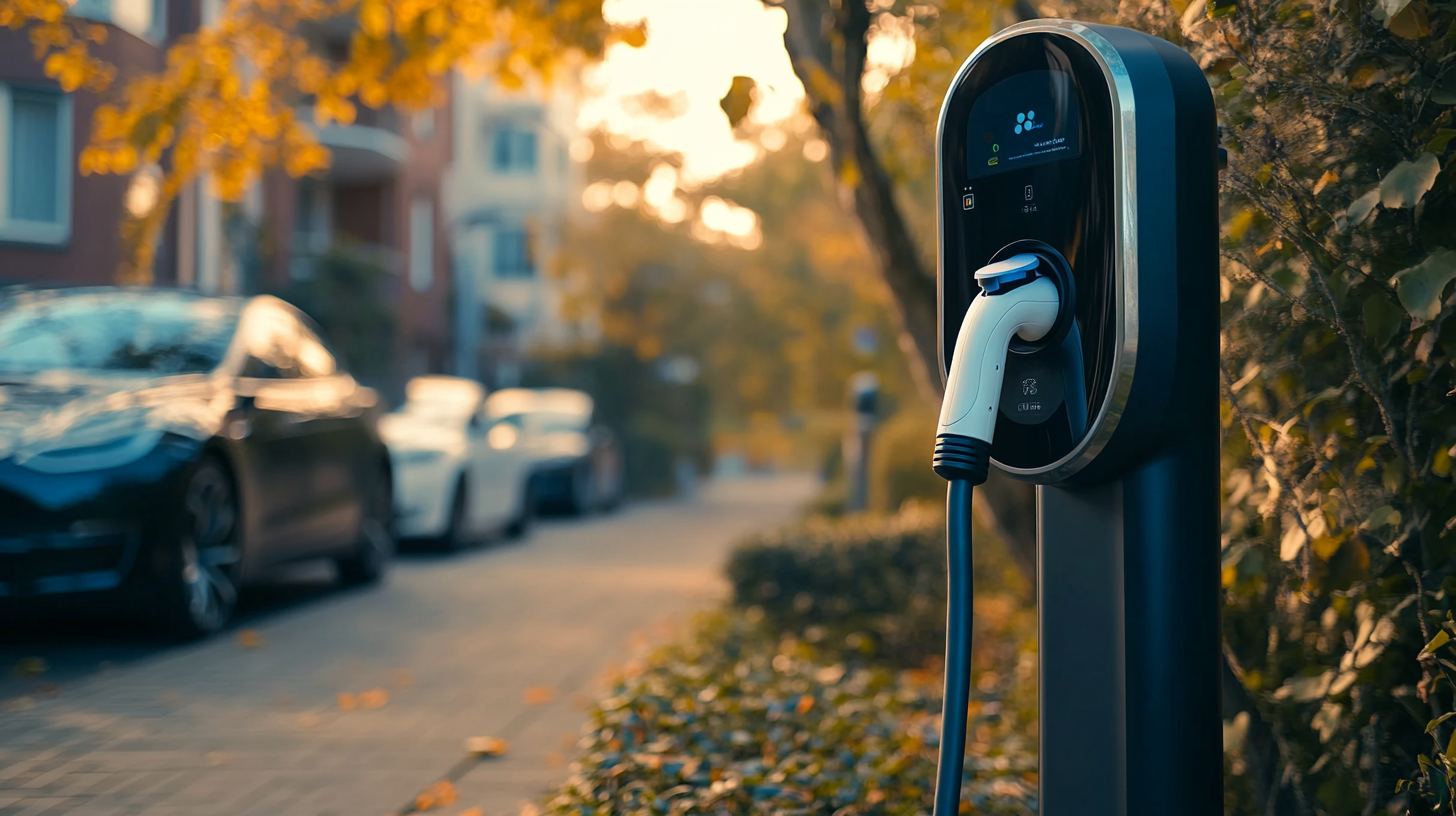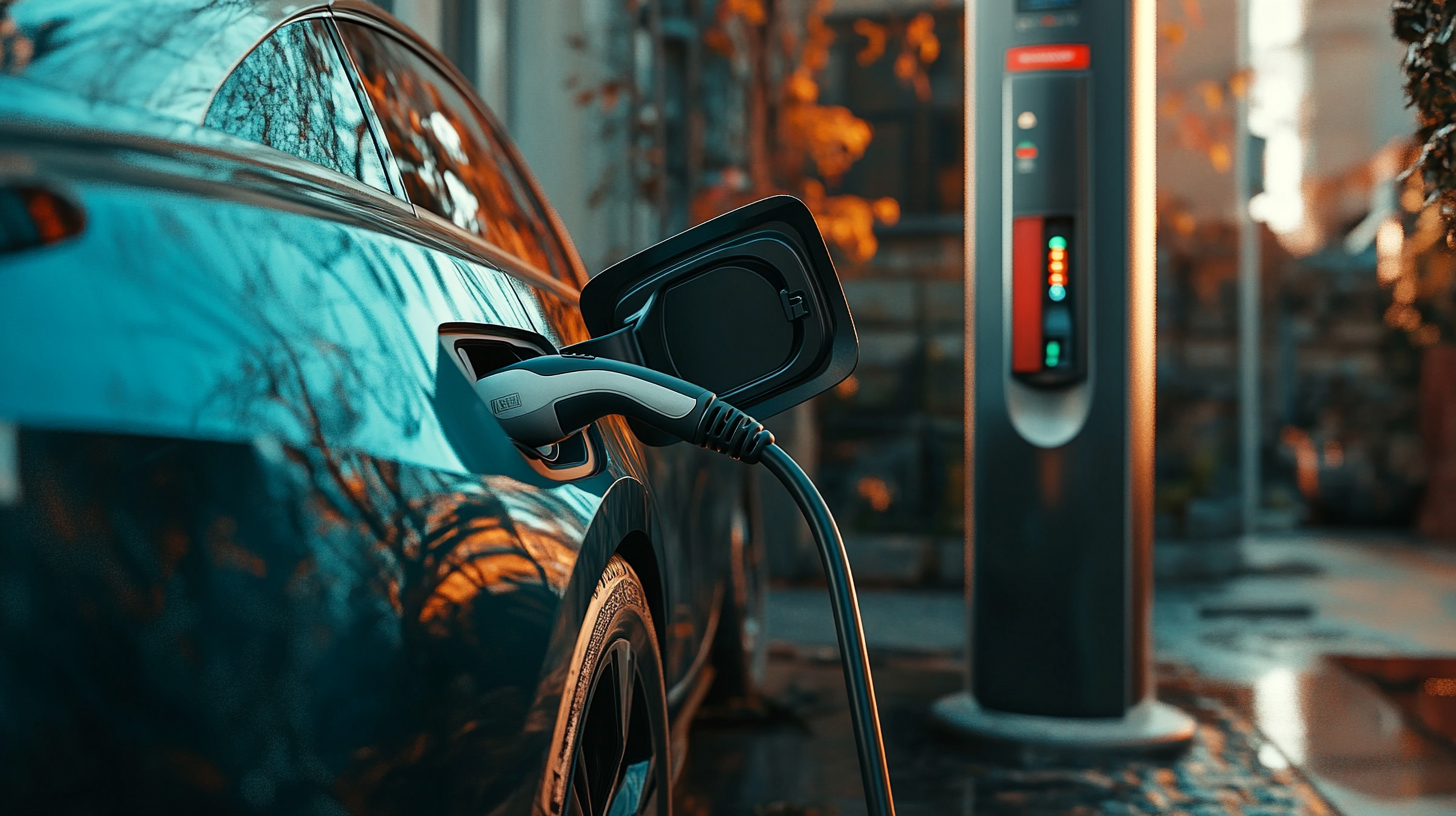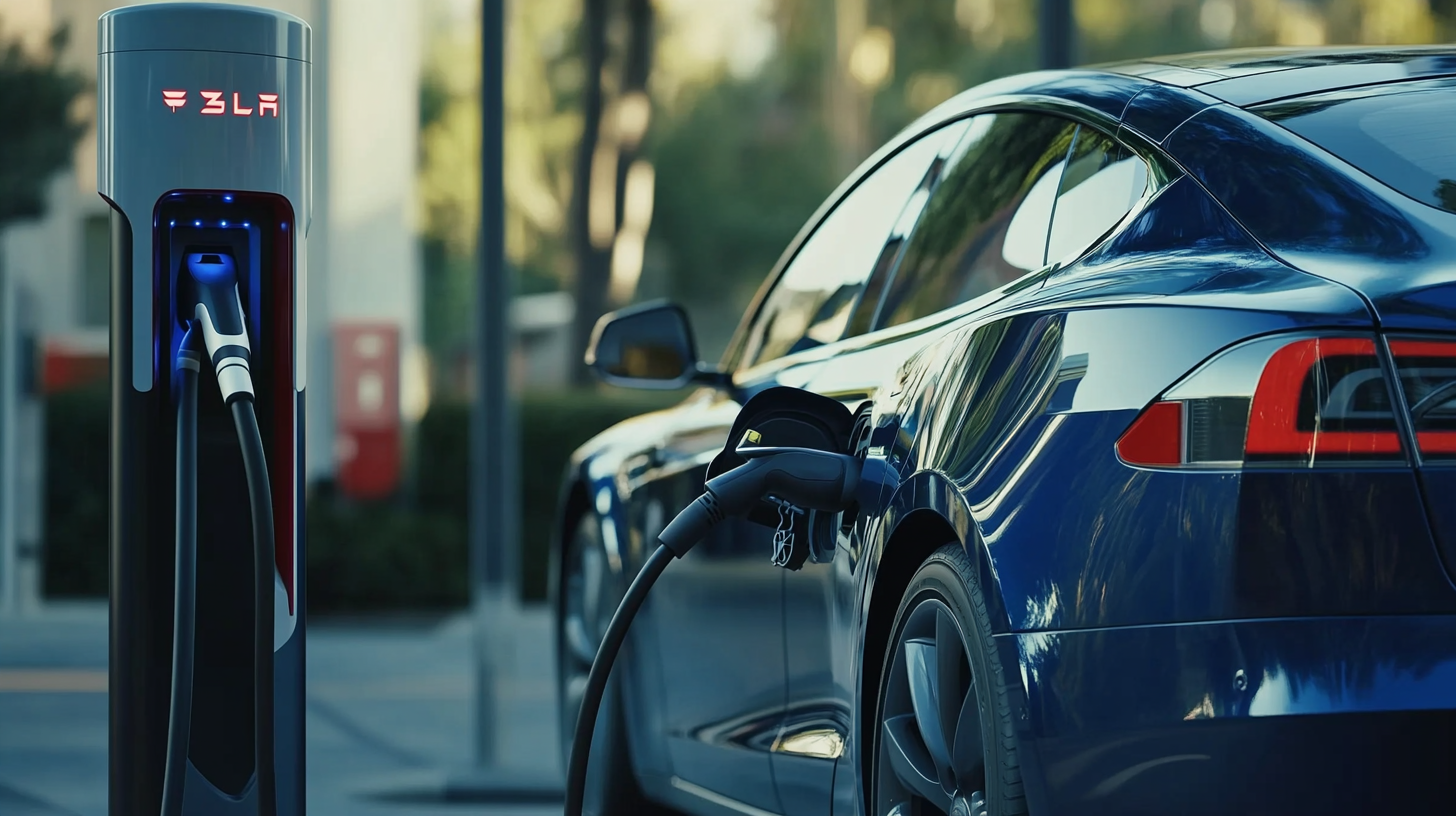The Electric Car Charger Business is experiencing unprecedented growth, fueled by the global push for sustainable transportation solutions. According to a recent report by the International Energy Agency, the number of electric vehicles on the road is set to outpace conventional vehicles by 2030, driving demand for efficient and reliable charging infrastructure.
 As manufacturers strive to meet this burgeoning demand, the emphasis on quality-driven solutions has never been more critical, particularly in the context of after-sales services and repair costs. A study conducted by McKinsey & Company highlights that approximately 20-30% of total lifecycle costs for electric vehicle charging solutions can be attributed to maintenance and service, underscoring the need for manufacturers to prioritize durability and serviceability.
As manufacturers strive to meet this burgeoning demand, the emphasis on quality-driven solutions has never been more critical, particularly in the context of after-sales services and repair costs. A study conducted by McKinsey & Company highlights that approximately 20-30% of total lifecycle costs for electric vehicle charging solutions can be attributed to maintenance and service, underscoring the need for manufacturers to prioritize durability and serviceability.
In this blog, we will explore the advantages of Chinese manufacturing in the electric car charger sector, offering insights and tips to leverage quality-driven products and services for a competitive edge in this dynamic market.
The electric vehicle (EV) market is experiencing unprecedented growth, with global sales expected to reach 30 million units by 2025, according to a report by the International Energy Agency (IEA). This surge in popularity puts significant emphasis on the quality of charging solutions, making it imperative to understand the key technical specifications of electric car chargers.
Effective charging solutions are characterized by several core specifications, such as charging speed, power output, compatibility, and safety features. Fast chargers typically operate at a power output of 50 kW or more, allowing the vehicle's battery to recharge to 80% in roughly 30 minutes. Conversely, Level 2 chargers, common for home use, provide around 7.2 kW, resulting in a full charge taking several hours. Additionally, compatibility with various EV models is crucial. The CCS (Combined Charging System) and CHAdeMO standards dominate the market, covering over 80% of the global EV fleet, according to the latest market research.
Safety is another paramount concern, with specifications such as overcurrent protection, thermal management, and waterproofing being vital to ensure safe operation. The IEC 61851 and UL 2202 standards offer frameworks that manufacturers adhere to, ensuring that chargers are both safe and reliable. As China continues to lead in manufacturing EV chargers, innovation and adherence to these specifications will be crucial in meeting the demands of an evolving global market.
This chart illustrates the technical specifications of top electric car chargers, focusing on key metrics such as charging speed (kW), efficiency (%), and compatibility (types of connectors).
China has emerged as a transformative force in the global automotive industry, particularly in the electric vehicle (EV) sector. Since 2009, it has positioned itself as a leading manufacturer of essential components, such as electric car chargers. Recently, Zhejiang JuYuan Electronics Co., Ltd. achieved a significant milestone by obtaining the China Compulsory Certification (CCC) for its electric bike chargers, marking a pivotal moment for quality assurance in the Chinese manufacturing landscape.
Quality control plays an indispensable role in ensuring that electric chargers meet safety and performance standards. The introduction of national standards, such as GB 42295-2022, emphasizes the need for robust quality measures. Industry reports indicate that effective quality management can reduce defects by 50% and enhance customer satisfaction significantly, which is crucial as the global market for charging stations grows.
Tips for manufacturers looking to improve quality control include implementing automated inspection systems and adopting continuous improvement methodologies. By prioritizing quality at every production stage, companies can ensure their products not only meet regulatory standards but also exceed consumer expectations, solidifying their competitiveness in the international market.

When selecting the right electric car charger for your needs, it’s essential to consider several factors that influence both compatibility and efficiency. According to a report by the International Energy Agency, the global electric vehicle (EV) stock reached 10 million units in 2020, demonstrating a surge in demand for effective charging solutions. Thus, ensuring that your charger is compatible with your vehicle is paramount. There are primarily two types of charging connectors—Type 1 and Type 2—commonly used in various EV models. Understanding which type your vehicle utilizes can significantly streamline your charging experience.
Furthermore, charging speed is another critical consideration. Level 1 chargers provide 120 volts and are suitable for overnight charging, while Level 2 chargers offer 240 volts, enabling faster charging times. The U.S. Department of Energy states that a Level 2 charger can recharge an EV in approximately 4-8 hours, whereas Level 1 may take overnight or longer. For those who frequently use their vehicles, investing in a Level 2 charger will likely provide the convenience required for daily use. Additionally, considering smart charger options that include features such as scheduling, remote monitoring, and energy management can enhance your charging efficiency and provide greater control over energy consumption.
In the rapidly evolving landscape of electric vehicle (EV) infrastructure, innovative technologies play a crucial role in enhancing the efficiency of electric car charging solutions. Chinese manufacturers are at the forefront of this transformation, implementing cutting-edge developments that streamline the charging process. From smart charging stations equipped with AI-driven algorithms to advanced battery management systems, these innovations are designed to optimize power distribution and reduce charging time significantly, ensuring that EV owners can enjoy a seamless experience.
Moreover, a focus on quality-driven manufacturing has led to the production of durable and reliable charging solutions that meet global standards. By utilizing high-grade materials and adopting stringent quality control measures, Chinese manufacturers ensure that their electric car chargers are not only efficient but also safe for consumers.
The integration of user-friendly interfaces and real-time monitoring systems further enhances the charging experience, providing drivers with transparency and peace of mind while charging their vehicles.
As the adoption of electric cars continues to rise, these technological advancements will play a pivotal role in shaping a sustainable future for transportation worldwide.
The global electric vehicle (EV) market is experiencing a remarkable transformation, with significant increases in charging infrastructure demand, particularly in residential areas. Recent studies indicate that the global market for vehicle chargers is expected to grow substantially, fueled by the rising penetration rate of electric vehicles, which achieved 25.6% in China alone in 2022. As EV adoption accelerates, so does the need for efficient and accessible charging solutions.
According to industry forecasts, the wireless charging market is projected to exceed $14.62 billion in 2023, with a compound annual growth rate (CAGR) of around 33.2% from 2024 to 2032, driven by the increasing demand for consumer electronics. Furthermore, the onboard charger market for electric vehicles is set to grow from $6.93 billion in 2025 to $22.89 billion by 2032, demonstrating an impressive CAGR of 18.6%. This trend highlights a critical shift in consumer preferences and regulatory frameworks supporting the transition to electrified transport systems and innovative charging technologies.

